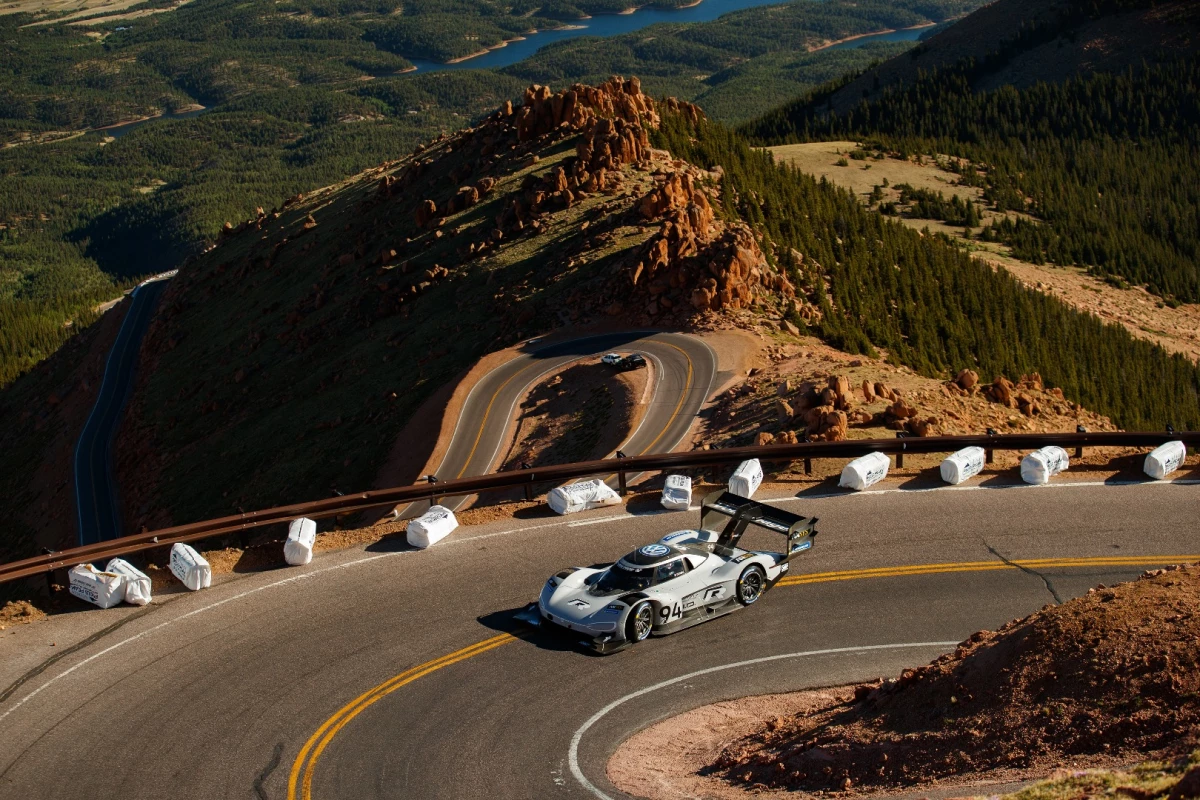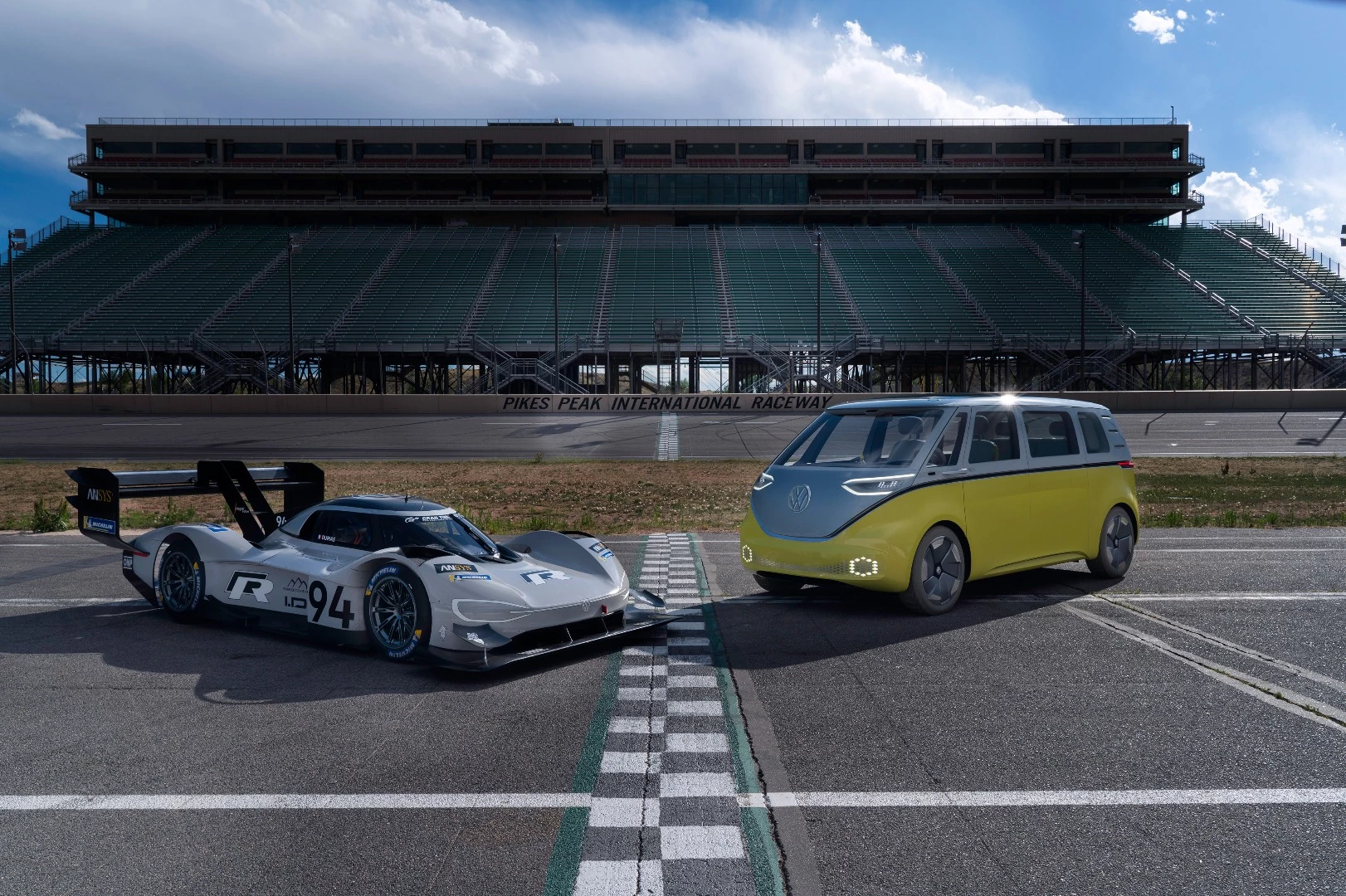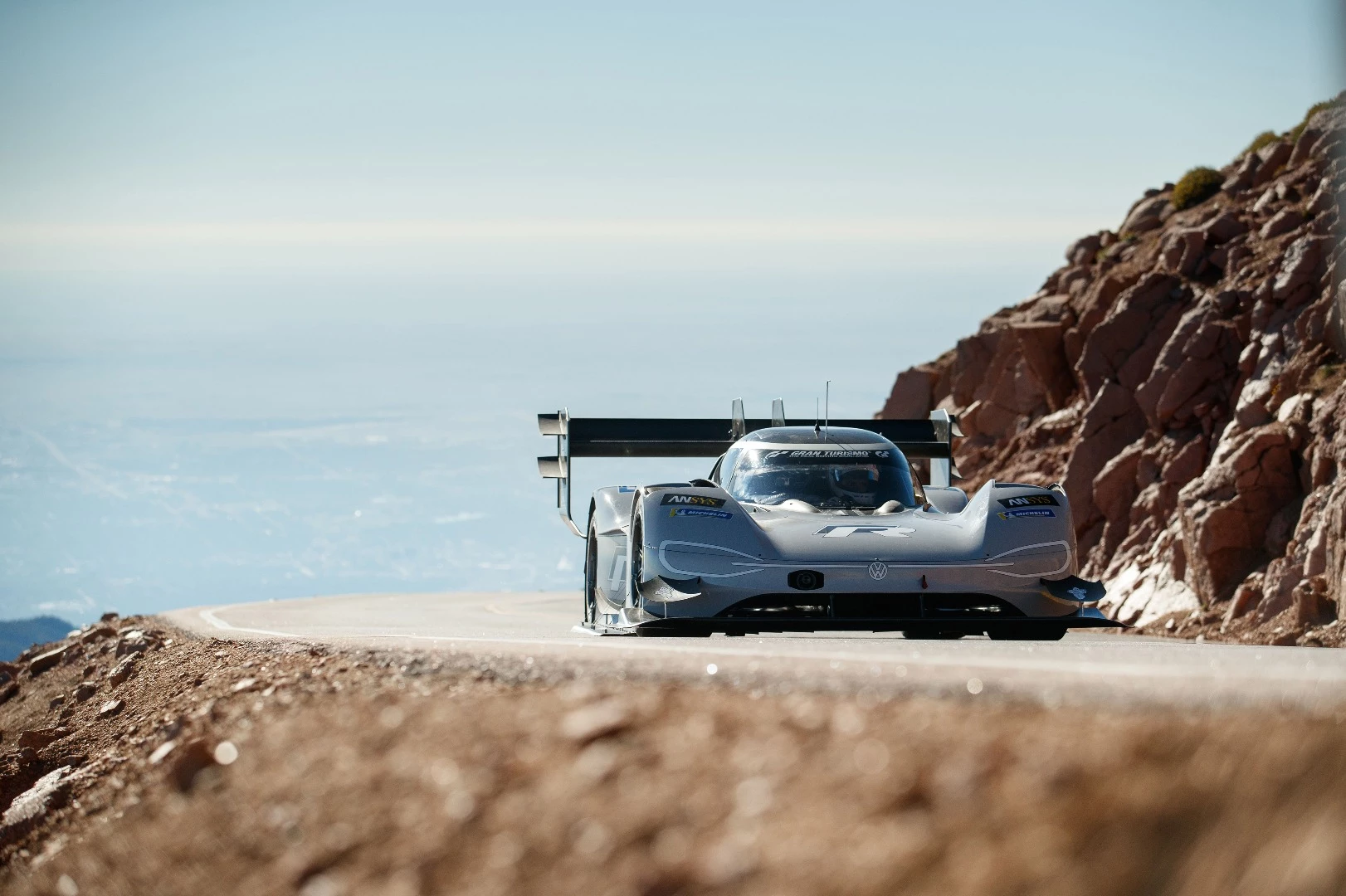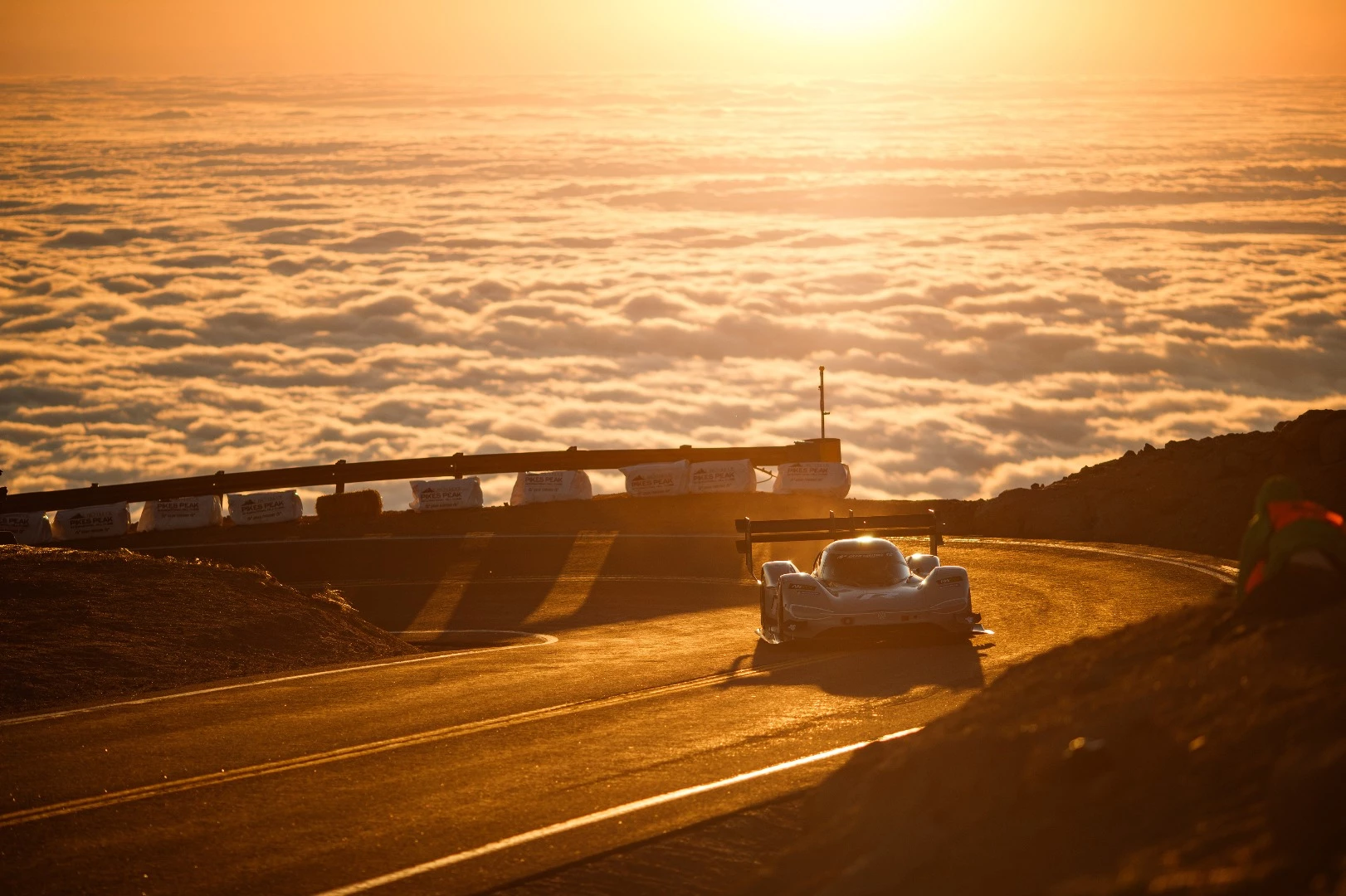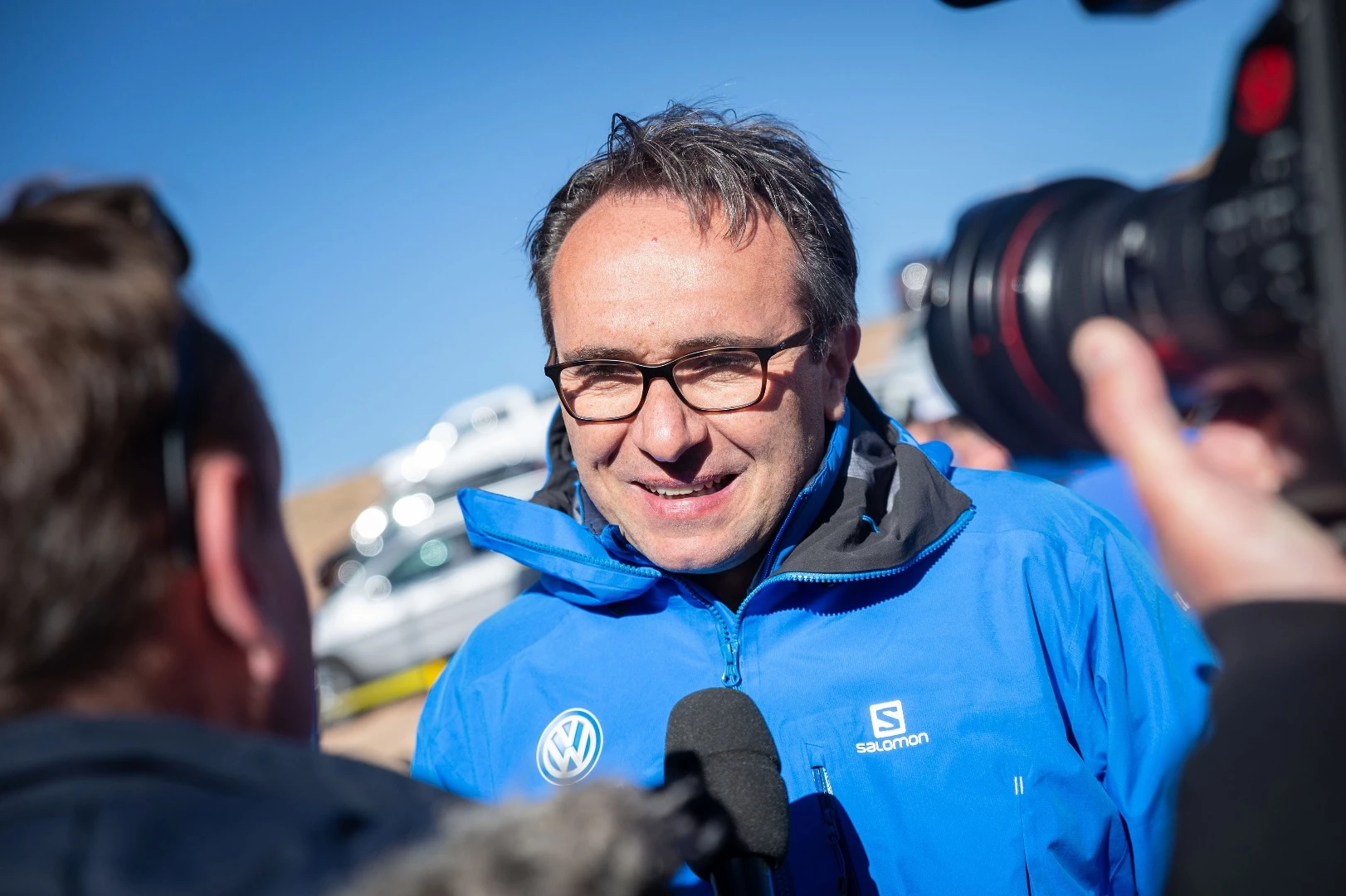After a superb performance in qualifying, we thought the battery-powered Volkswagen had a good chance at beating the electric record at Pikes Peak. Turns out Romain Dumas and the VW team had their sights set higher, and today they smashed the all-time record with the first time ever under 8 minutes.
Back in 1988, when Ari Vatanen filmed the classic, jaw-dropping video that introduced much of the world to Pikes Peak, the road to the top of the mountain was all dirt. Any time under 11 minutes was an absolute blinder, and the spectacle of rally cars flying sideways around hairpin corners on the edge of sheer cliffs was absolutely spine-tingling.
Rod Millen utterly dominated the event in the 90s, with a series of times so close to the 10 minute mark that it seemed a certainty that his Toyota Celica would one day break into single figures. But in the end it took until 2011 for Japanese superhero Monster Tajima to set a 9:51, on a track that was mostly tarmac by that point.
The race is different these days. Since 2012, the "Race to the Clouds" has been entirely paved over, leading to increased grip and the ability to run serious road race machines with low, flat aerodynamic profiles. Sebastien Loeb set a scorching time of 8:13.878 in 2013 that looked almost untouchable. Only one other driver since then made it to the top in under 9 minutes.
That driver was Romain Dumas, of France, who won the 2016 and 2017 hill climbs in gas-powered Norma race cars that looked like oversized, streamlined go-karts.
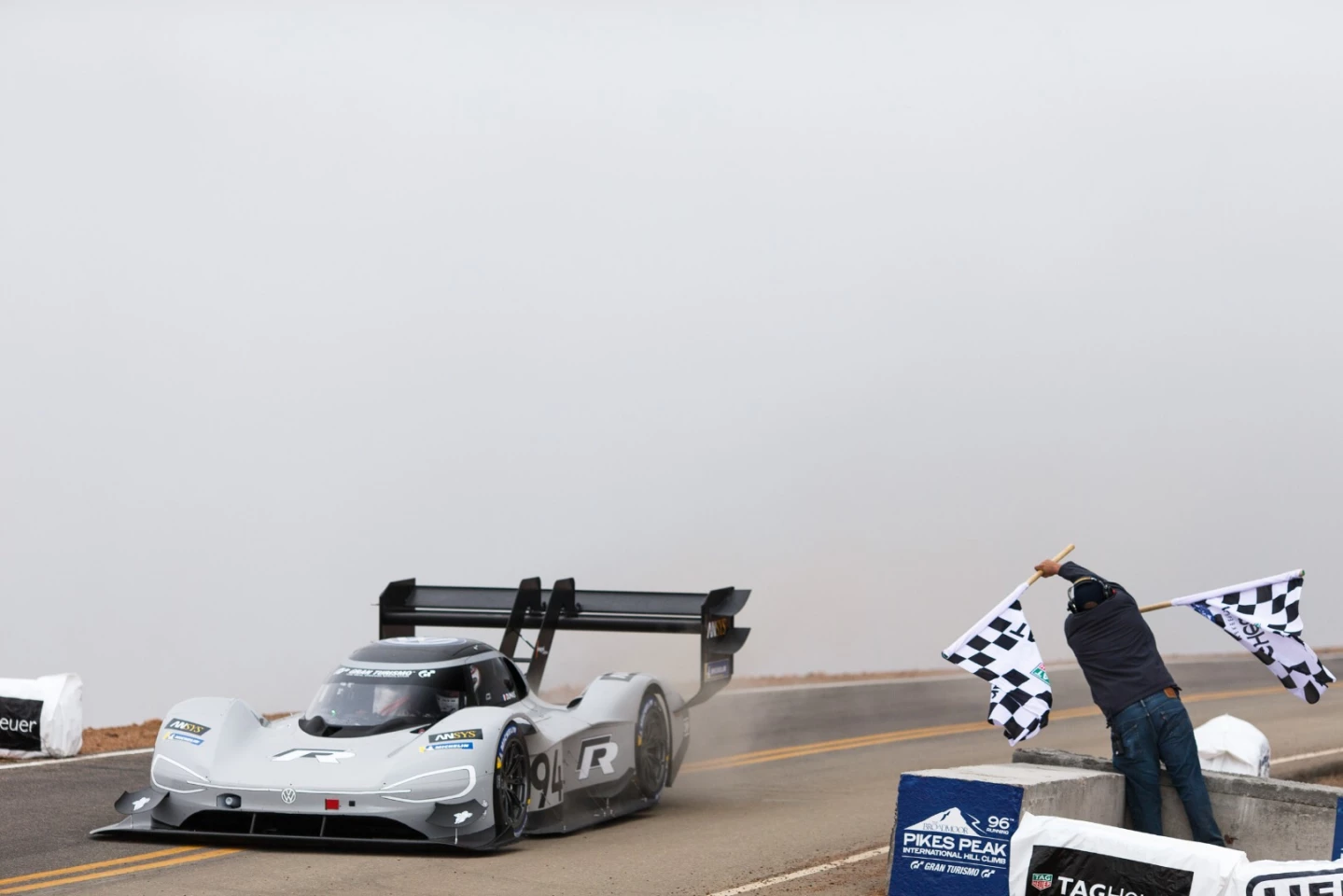
This year, he made the jump to electric, and slashed nearly a minute off his best time. Driving Volkswagen's 500-kilowatt (670-horsepower) I.D. R racecar, Dumas didn't just break Loeb's all-time record for Pikes Peak, he smashed it by more than 16 seconds with a time of 7 minutes, 57.148 seconds, thus becoming the first driver ever to break the 8 minute barrier and obliterating the bragging rights of the combustion engine in a way that will be very hard to reverse.
"Since this week's tests, we have known that it was possible to break the all-time record," said Dumas. "For it to come off, everything had to come together perfectly – from the technology to the driver. And the weather had to play ball too. That everything ran so smoothly is an incredible feeling, and the new record on Pikes Peak is the icing on the cake. I still cannot believe that Volkswagen and my name are behind this incredible time. The I.D. R Pikes Peak is the most impressive car I have ever driven in competition. The electric drivetrain means that many things are different and I learned a lot during the project. The team did an indescribably meticulous, yet at the same time relaxed, job. Not only did we get the desired result, but the team spirit was also spot on. I am incredibly proud to have been a part of it."
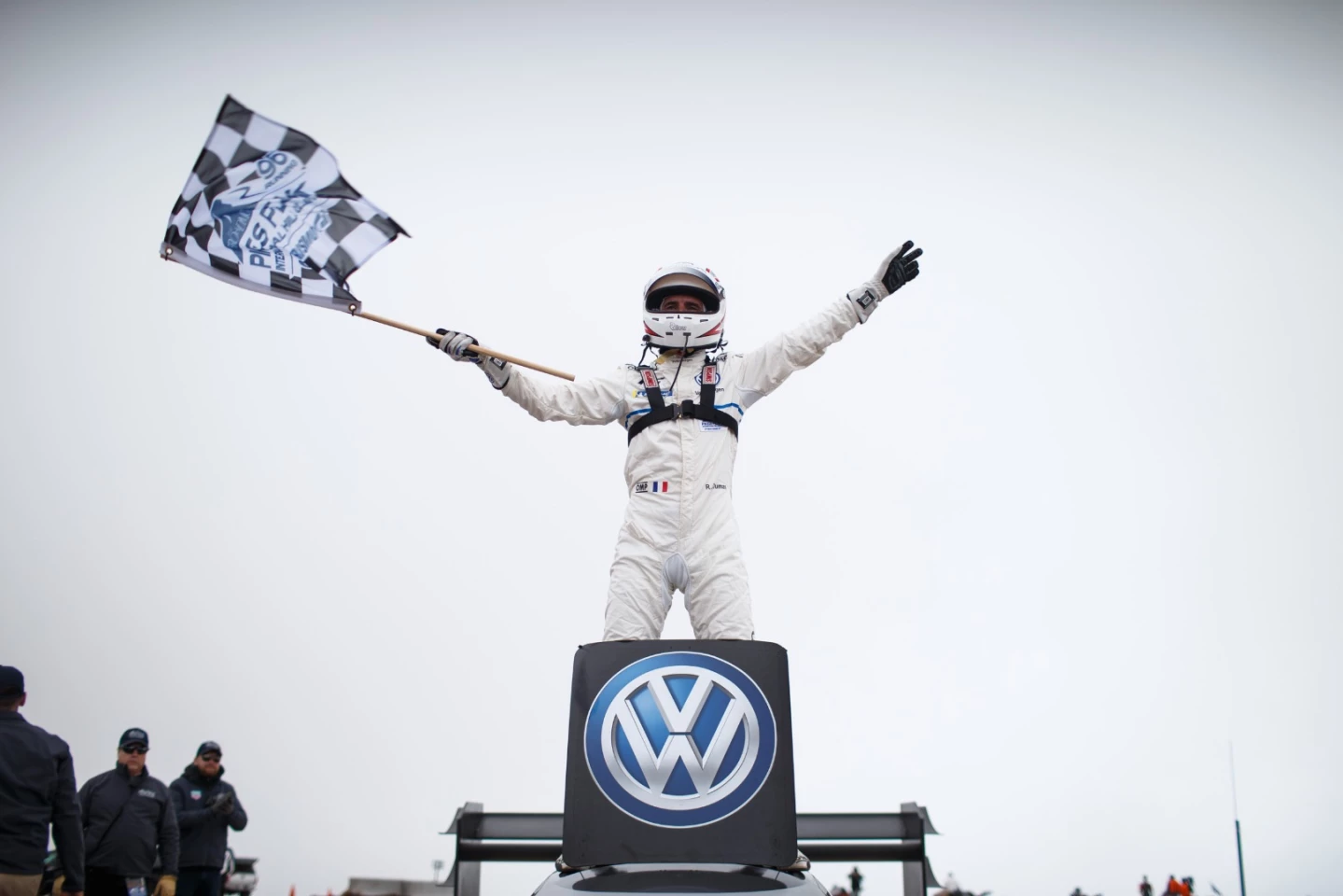
The performance potential of electric race cars has been clear for seven or eight years now, even to the most dedicated petrolheads. It seems an inevitability that electrics will take over and begin dominating all forms of motorsport – and if they were going to break through anywhere, Pikes Peak was it.
The course is short at just 19.99 kilometers, or 12.42 miles, so the chief issue with electrics – range – isn't a problem. The altitude is quite high, climbing some 4,720 feet (1.44 km) over its famous 156 turns up to 14,110 feet (4,300 meters). That means the air thins out as the cars get toward the top, playing havoc with intake pressures, turbo speeds and intake air temperatures. Electrics care not a whit for air pressure, giving them a significant advantage. Add that to their instant torque, more or less independent of engine revs, and the precision with which they can be tuned in terms of traction and stability management, and it's hard to see a combustion car taking the advantage back at Pikes Peak.
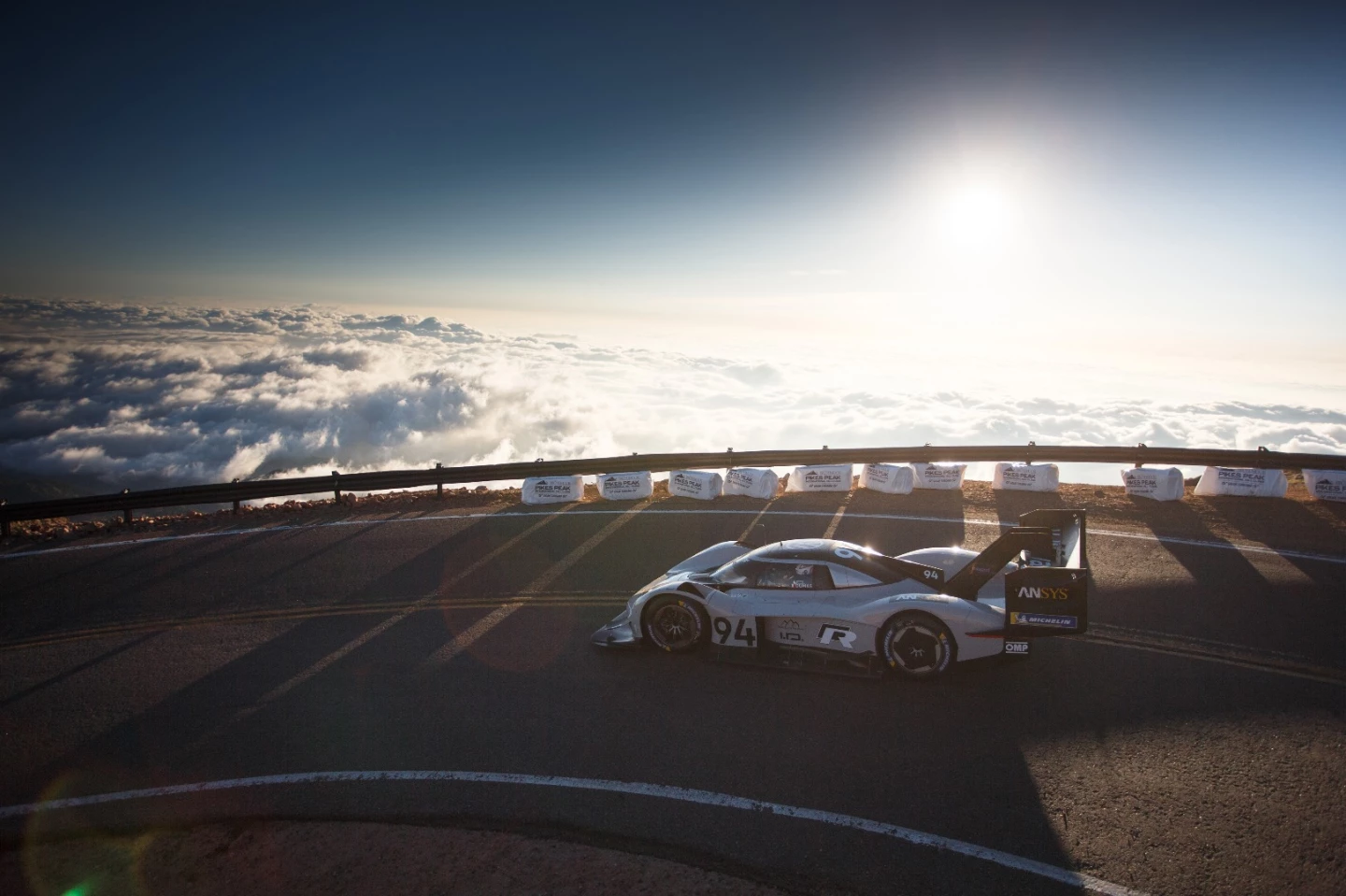
What's next? Perhaps the storied Nurburgring in Germany, whose 20.8 km (12.9 mile) outright course record for a street-legal production car now stands at 6:47.25, set last year in a Porsche 911 GT2 RS. The NIO EP9 has already recorded a time just 65 hundredths of a second slower, but it doesn't meet the criteria for street-legal production status. It seems certain an electric will eventually prevail here.
Mind you, there are stories floating about of BMW Formula 1 engineers running lap simulations to estimate what time their screaming machine should do the 'ring in way back in 2006. Their guess? Sometime under 5:15. So it seems gasoline will still reign supreme at the ultimate level for some time.
That takes nothing away from Volkswagen's achievement on the weekend, though. Congratulations to Romain Dumas and the I.D. R team! There's a short video below, but we're looking forward to seeing the entire run from the cockpit to get a sense of what that kind of crazy speed might feel like. We doubt it'll top the heart-stopping hairiness of Vatanen's Climb Dance in the dirt, but it should still be spectacular!
Source: Volkswagen
